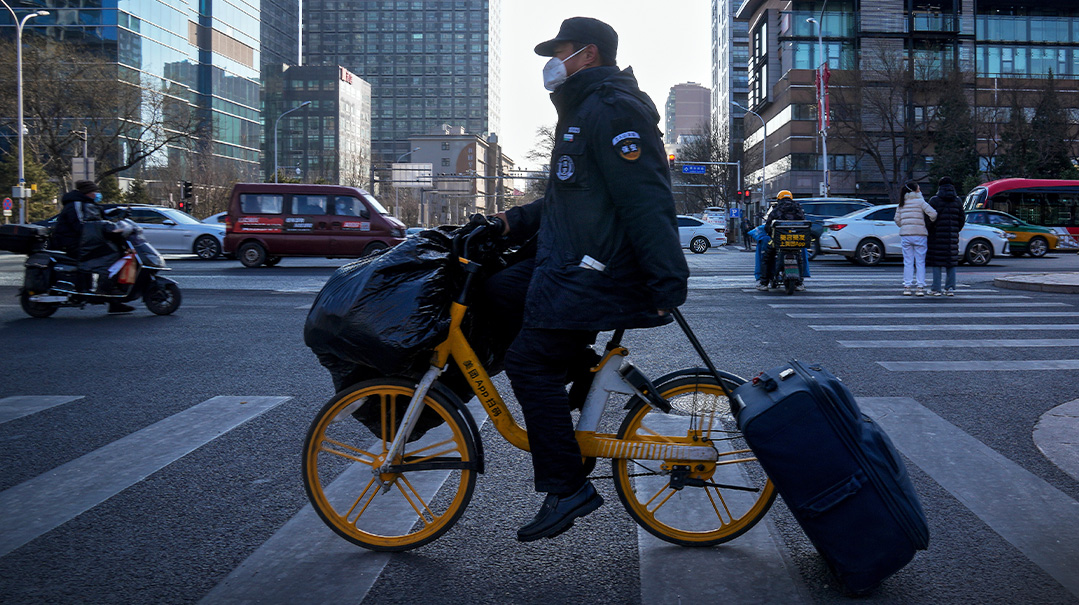Covid in China: Déjà Vu?

How can the world force China to produce accurate data?

Photo: AP Images
With the outbreak of the COVID-19 pandemic in 2020, calls erupted around the world for increased transparency from Chinese authorities regarding the virus’s origin. Transparency is not Beijing’s strong suit, to say the least, and it took several external investigations to determine that the virus had in fact originated in Wuhan.
Fast-forward three years, and not much has changed. Last Shabbos, Chinese authorities finally admitted that 59,938 people had died from Covid in the past month. This was a “slight” correction to the previous official government tally, which came to a grand total of 37 fatalities.
That’s right, until Shabbos, Chinese authorities were claiming that in a country of 1.4 billion, only 37 people had died from Covid in December and January.
However, Western media reports, backed by photographs proving that morbidity in hospitals and activity in funeral homes were much higher than usual, led the authorities to change their story.
It all started a few weeks ago, when a major protest erupted over the government’s “zero Covid” policy.
Although it initially appeared that the authorities would ruthlessly stamp out the protest, the government unexpectedly lifted most of the restrictions.
As a result, a massive outbreak of Covid began in large cities, with troubling reports emerging of hospitals and medical teams strained to the limit with the overload of cases.
The Chinese government’s decision to update the data shows it understands that it isn’t possible to keep up the pretense when everyone knows what’s really happening.
But beyond that, the recent outbreak raises a number of questions. First, how might the surge in morbidity affect the rest of the world? We’ve already seen a number of countries imposing restrictions on travelers from China, but the question is whether this trend will gain traction.
Secondly, medical experts have expressed concern about the emergence of new variants as a result of the renewed outbreak.
Added to all this is the fact that China is the largest production center in the world, and health disruptions there could have real consequences for global trade, if the production process is disrupted.
Finally, the most important question of all, to which there may not be an answer, is what sort of accountability China should face. How can the world force China to produce accurate data? Will travel restrictions targeting Chinese citizens, for example, persuade the authorities to start cooperating with the world?
Unfortunately, judging by the response of the authorities in previous waves, it seems that the answer may be negative, and that it will take a long time before we know the scope of the epidemic currently raging in China, if ever.
(Originally featured in Mishpacha, Issue 945)
Oops! We could not locate your form.







